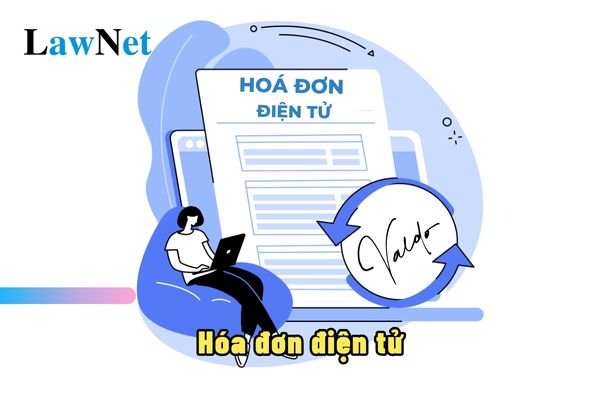Is an e-invoice converted into a paper invoice valid for use in Vietnam?
Is an e-invoice converted into a paper invoice valid for use in Vietnam?
Based on Article 7 of Decree 123/2020/ND-CP which provides as follows:
Conversion of e-invoices and e-records into paper invoices and records
1. A legal e-invoice or E-record can be converted into a paper invoice or record upon the arising of economic, financial transactions or upon the request of tax authorities, audit authorities, inspection, examination, or investigation agencies, and as prescribed by the law on inspection, examination, and investigation.
2. The conversion of e-invoices and E-records into paper invoices and records must ensure the accuracy of the content between the e-invoice, E-record and the paper invoice, record after conversion.
3. When an e-invoice or E-record is converted into a paper invoice or record, the paper invoice or record is only valid for record-keeping in books and following the provisions of the law on accounting and electronic transactions. It does not have any effect for transactions or payments, except in cases where invoices are created from cash registers that are electronically connected with tax authorities as per regulations.
The principle when converting an e-invoice to a paper invoice is to ensure the accuracy of the content between the e-invoice and the paper invoice after conversion. Legal e-invoices can be converted into paper invoices when there is an arising economic, financial transaction demand, or upon the request of tax authorities, audit authorities, inspection, examination, or investigation agencies, and as provided by the law on inspection, examination, and investigation.
Thus, according to the above regulations, when an e-invoice is converted into a paper invoice, it only holds value for record-keeping purposes and does not have any effect for transactions or payments, except in cases where the invoice is generated from a cash register that is electronically connected with tax authorities as per regulations.

Is an e-invoice converted into a paper invoice valid for use in Vietnam? (Image from the Internet)
Is the authorization to issue e-invoices notified to the tax authorities in Vietnam?
According to Clause 1, Article 3 of Circular 78/2021/TT-BTC on the authorization for e-invoice issuance:
Authorization to issue e-invoices
1. Principles of authorization for invoice issuance
a) Sellers of goods or service providers being enterprises, economic organizations, or other organizations may delegate a third party that has a related-party relationship with the seller, falls under eligible entities for using e-invoices, and is not subject to temporary suspension of e-invoice usage as per Article 16 of Decree 123/2020/ND-CP for e-invoice issuance for sales of goods or services. Related-party relationships are determined in accordance with tax management laws;
b) The authorization must be formalized in writing (contract or agreement) between the delegating party and the delegate;
c) The authorization must be reported to the tax authority when registering for e-invoice usage;
d) e-invoices issued by the delegated organization are either tax-coded or non-coded based on the tax authority and must display the name, address, taxpayer identification number of the delegating party, and the name, address, taxpayer identification number of the delegate;
đ) Both delegating and delegated parties must publicly post on their website or announce publicly via media so buyers of goods or services are aware of the invoice issuance authorization. Once the authorization period ends or is terminated prematurely per agreement, the delegating and delegated parties must cancel public postings on their website or publicly announce via media about the authorization termination;
e) If the delegated invoice is an e-invoice without a tax code (hereafter referred to as a non-coded e-invoice), the delegating party must transfer the e-invoice data to the tax authority either directly or through a service provider to send the e-invoice data to the tax authority directly;
g) The delegate is responsible for issuing delegated e-invoices according to actual occurrences, as per the agreement with the delegating party and must comply with the principles in Clause 1 of this Article.
...
Thus, authorization for e-invoice issuance must be reported to the tax authority.
What are the regulations on tax authority’s identification code on e-invoices?
Based on sub-item 3, Item 4 of the Regulations issued with Decision 1450/QD-TCT in 2021, amended by Clause 1 of the Appendix issued with Article 1 of Decision 1510/QD-TCT in 2022:
- The tax authority’s identification code on the e-invoice is a string of 34 characters uniquely created for each e-invoice either by the tax authority’s system or the system of the entity authorized by the tax authority.
- The tax authority’s identification code on e-invoices created from a cash register consists of a series of 23 characters structured as follows:
C1C2C3C4C5C6C7C8C9C10C11C12C13C14C15C16C17C18C19C20
Where:
+ One character C1: is the fixed letter M to denote that the e-invoice is created from a cash register as specified in point b, Clause 1, Article 4 of Circular 78/2021/TT-BTC.
+ One character C2: is a fixed symbol to represent the type of e-invoice from 1 to 6 as specified in point a, Clause 1, Article 4 of Circular 78/2021/TT-BTC.
+ Two characters C3C4: are the last 2 digits of the invoice issuance year automatically generated from the seller's software.
+ Five characters C5C6C7C8C9: are a sequence of 5 characters automatically generated by the tax authority to ensure uniqueness.
+ Eleven characters C10C11C12C13C14C15C16C17C18C19C20: are a sequence of 11 continuously increasing numbers automatically generated from the sales software.
+ The hyphen (-): is a character used to separate groups of characters indicating invoice type, automatically generated invoice issuance year from software, characters assigned by the tax authority, and sequentially increasing number strings generated from the sales software.
The tax authority’s identification code on e-invoices generated from cash registers can be set up for multiple cash registers at one or multiple business locations or dependent units to ensure the uniqueness of each invoice.

